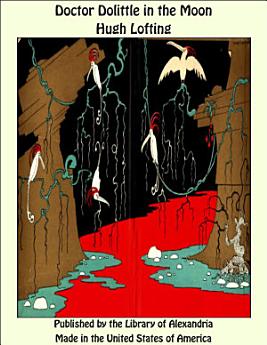Doctor Dolittle in the Moon
Über dieses E-Book
For the story could be told in many ways. People are so different in what they want to know about a voyage. I had thought at one time Jip could help me; and after reading him some chapters as I had first set them down I asked for his opinion. I discovered he was mostly interested in whether we had seen any rats in the Moon. I found I could not tell him. I didnÕt remember seeing any; and yet I am sure there must have been someÑor some sort of creature like a rat.
Then I asked Gub-Gub. And what he was chiefly concerned to hear was the kind of vegetables we had fed on. (Dab-Dab snorted at me for my pains and said I should have known better than to ask him.) I tried my mother. She wanted to know how we had managed when our underwear wore outÑand a whole lot of other matters about our living conditions, hardly any of which I could answer. Next I went to Matthew Mugg. And the things he wanted to learn were worse than either my motherÕs or JipÕs: Were there any shops in the Moon? What were the dogs and cats like? The good CatsÕ-meat-Man seemed to have imagined it a place not very different from Puddleby or the East End of London.
No, trying to get at what most people wanted to read concerning the Moon did not bring me much profit. I couldnÕt seem to tell them any of the things they were most anxious to know. It reminded me of the first time I had come to the DoctorÕs house, hoping to be hired as his assistant, and dear old Polynesia the parrot had questioned me. ÒAre you a good noticer?Ó she had asked. I had always thought I wasÑpretty good anyhow. But now I felt I had been a very poor noticer. For it seemed I hadnÕt noticed any of the things I should have done to make the story of our voyage interesting to the ordinary public.
The trouble was of course attention. Human attention is like butter: you can only spread it so thin and no thinner. If you try to spread it over too many things at once you just donÕt remember them. And certainly during all our waking hours upon the Moon there was so much for our ears and eyes and minds to take in it is a wonder, I often think, that any clear memories at all remain.
The one who could have been of most help to me in writing my impressions of the Moon was Jamaro Bumblelily, the giant moth who carried us there. But as he was nowhere near me when I set to work upon this book I decided I had better not consider the particular wishes of Jip, Gub-Gub, my mother, Matthew or any one else, but set the story down in my own way. Clearly the tale must be in any case an imperfect, incomplete one. And the only thing to do is to go forward with it, step by step, to the best of my recollection, from where the great insect hovered, with our beating hearts pressed close against his broad back, over the near and glowing landscape of the Moon.








